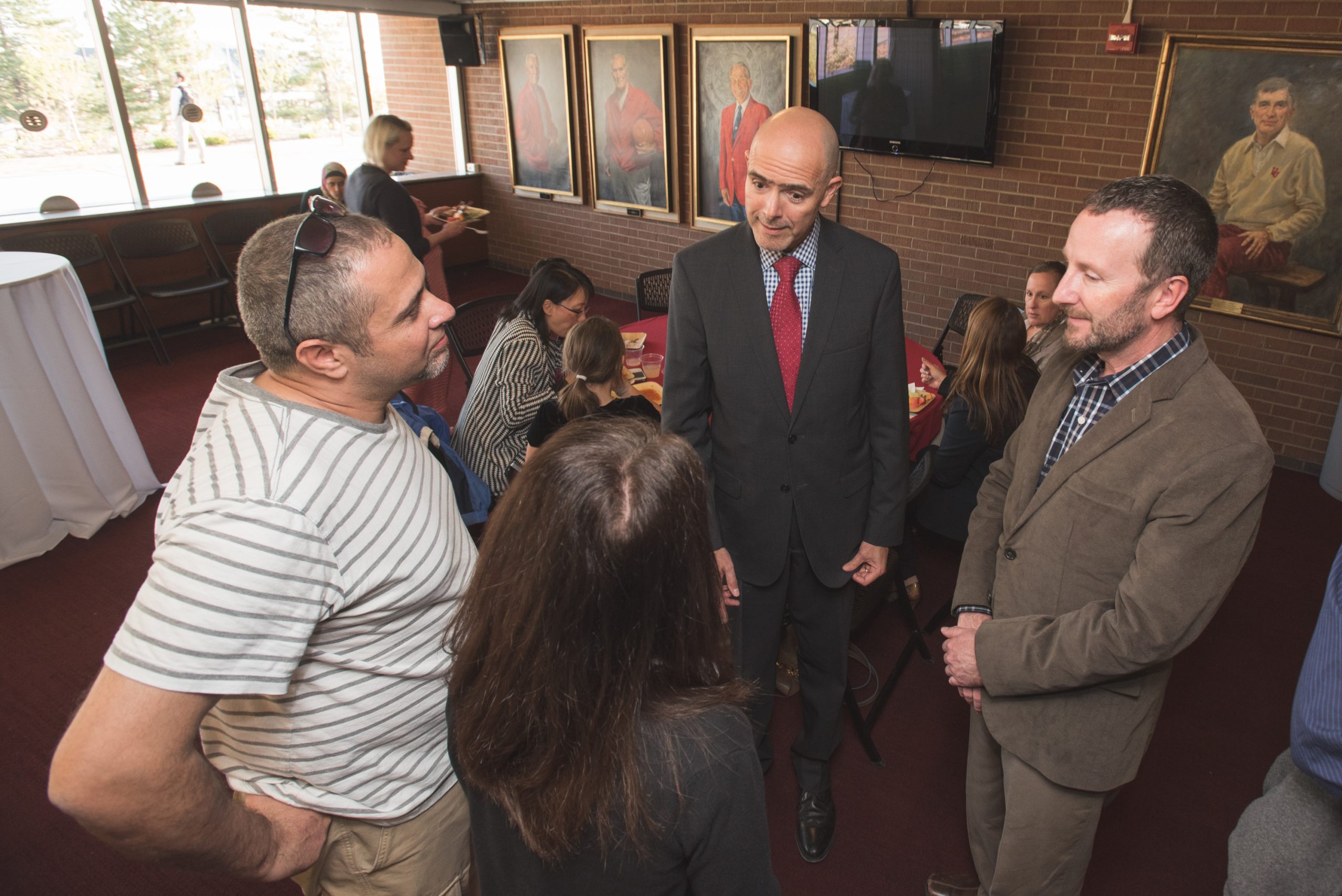As the first Administrative Director of Global Health, Juan Carlos Negrette has been hard at work attempting not only to establish new international partnerships and opportunities within the Global Health community for the University of Utah, but also to create a sense of synergetic engagement across the health sciences with internationally involved staff and faculty of the university.
Negrette, whose role helping to lead the university’s Global Health initiative began Jan 1, 2015, has been spearheading a new plan for the University of Utah’s future within the field of Global Health. Negrette has already met with more than 60 staff and faculty from across both main campus and health sciences to lay out a roadmap to move forward as a global health community at the University of Utah.
“The University of Utah has a very wide footprint in the global health scene. People within the Global Health community at the university know each other and from time to time they work together, but the level of collaboration varies. Sometimes it can be significant and other times it can be virtually non-existent,” Negrette said. “The goal of having an office for Global Health is to facilitate coordination between programs, develop systems and tools to aid in that coordination, and to create criteria for the development of new engagements.”
Negrette believes that the University of Utah is particularly well placed to participate in development cooperation programs funded by governments or international entities, with specific research and learning goals in mind.
“We have the knowledge, the talent and the tools at this university that allow us to innovate a lot here at this school,” Negrette said. “This is one of the distinct competences that the University of Utah has, and that can carve out a niche for the school in the global health leadership scene. Because of this we can effectively bring new approaches to healthcare worldwide.”
“These advancements could center on a specific [health] intervention, service delivery, and capacity building through teaching and research,” Negrette explained. “The goal for us is to advance projects that combine those three elements .”
Though the University of Utah’s current Global Health initiative is still in its early development stages, the university itself has a rich history in international health work, as well as a number of new innovations such as the graduate degree in Public Health offered at the University’s U Asia Campus in South Korea. (asiacampus.utah.edu)
It’s this extensive groundwork that Negrette hopes to build upon moving forward, with his ultimate goal, what he called “the crown jewel,” being the ability to create a two-way source of knowledge-based communication.
“The University of Utah has all the opportunity in the world. We have all the right DNA and the right conditions to claim a position of leadership in Global Health, particularly around innovation,” Negrette said. “The University also effectively connects us with the rest of the globe in a two-way communication. We are pursuing that in particular, because if we have the opportunity to connect what we do here with our community in Utah, we will be able to take the things we learn here and apply them to projects in areas such as Ghana, while taking things we learn there and applying them here.”
Negrette believes that the reason this exchange of knowledge is so important is because the world has rapidly become a much more globalized space. As he and many others in the health sciences see it, isolation within our given world community not only is no longer a reasonable option, it is an irresponsible one.
“We have redefined the world as our community. It’s no longer just your street or your neighborhood, or even the town you are from. Our community is actually much larger than that,” Negrette said. “One of those things that goes unnoticed within our health landscape is that despite the fact that many modern health impediments haven’t come directly to the United States, they’ve still hit us very hard.”
The impact of the AIDS epidemic is an example Negrette provided, demonstrating that a disease originating on another continent can quickly have an impact on healthcare worldwide. Diseases such as AIDS have changed the way we interact in the global health space.
“The infectious nature of knowledge is one of the reasons collaboration is so important. This infectious nature helps to create ripples that go way beyond our immediate sphere of knowledge,” Negrette said. “Collaboration is extremely important not just because of the nature of how beautiful it looks to work together, but because the sum of its parts has greater influence than any one of them could have independently. In the end this leads to much greater results..”

